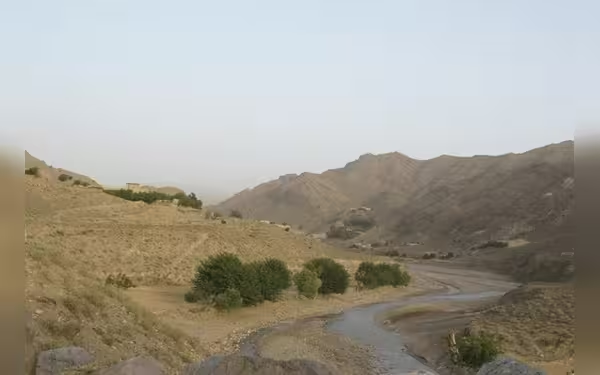Thursday, July 4, 2024 05:48 PM
Pashtun Community in North Waziristan Faces Ongoing Conflict
- Long-standing conflict between military forces and militants in North Waziristan
- Ambiguity surrounding reported US drone operations causing anxiety among locals
- Call for transparency, accountability, and compassionate strategy in addressing security threats
 Image Credits: thefrontierpost
Image Credits: thefrontierpostThe Pashtun community in North Waziristan faces ongoing conflict due to military offensives, terrorist activities, and US drone operations. Calls for transparency, accountability, and a compassionate strategy to prioritize civilian safety.
In the rugged terrains of North Waziristan, a region once part of Pakistan's tribal lands, a long-standing conflict has plagued the local Pashtun community for over two decades. The area has been a battleground between military forces and militants, leading to a constant state of fear and uncertainty among the residents.
The recent ambiguity surrounding reported US drone operations in the region has further complicated the situation. Pentagon Deputy Spokesperson Sabrina Singh's guarded response to inquiries reflects the lack of transparency regarding military activities, leaving the local population anxious about potential drone strikes.
The Pashtun residents have endured years of conflict, facing the brunt of military offensives and terrorist activities. Groups like Tehrik-i-Taliban Pakistan (TTP) and ISIS have added to the extremism and violence in the region, creating a volatile environment where civilians are caught in the crossfire.
Efforts are being made to enhance collaboration between the US and Pakistan to address these security threats. However, the safety and well-being of innocent civilians must remain a top priority in any strategic discussions. The memories of displacement and loss still haunt many locals, underscoring the devastating impact of warfare on civilian populations.
The recent scrutiny of alleged connections between Afghan officials and the Taliban during the US withdrawal from Afghanistan highlights the need for increased transparency and accountability in military and strategic decision-making. It is crucial that all actions taken in the region consider the humanitarian impact and adhere to international laws governing warfare.
As we look towards the future of North Waziristan, it is essential to prioritize the safety of its inhabitants. The international community, particularly the US and Pakistani governments, must ensure that their actions do not further harm the vulnerable population. Transparency, oversight, and communication are key to involving local communities in their protection and minimizing civilian casualties.
The narrative of North Waziristan serves as a stark reminder of the human cost of war. It is imperative for policymakers and military leaders to reassess their approaches, focusing not only on eliminating threats but also on safeguarding the lives of innocent individuals. The resilient Pashtun community deserves a strategy that prioritizes their safety and aims to restore peace without further bloodshed. By making thoughtful decisions and considering the well-being of those who have suffered, hope can be reignited in a region overshadowed by conflict.













